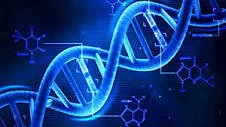nutrigenomics
NUTRIGENOMICS
Genetic testing and nutrigenomics are the future of individualised healthcare. Tracie has a great understanding and can interpret genetic reports, she works with your genetic variants using nutritional recommendations (nutrigenomics) and lifestyle guidance. Protocols become individualized and preventative, rather than generalized and reactionary. No two people are the same.
Nutrigenomics: Is the study of how different foods may interact with specific genes to increase the risk of common chronic diseases such as type 2 diabetes, obesity, heart disease, stroke and certain cancers. People respond in different ways to different diets because the variations in our DNA can have a significant impact on our metabolic efficiency, how or what causes us to lose or gain weight and more.
Understanding these connections means that we may no longer have to play a guessing game every time we try out a new food or eating pattern. By knowing our genetic makeup, we could predict our body’s response to food before we even eat it. But of course, we can’t ignore the effects of other aspects of our lives, like age, gender, physical activity and environmental influences. These characteristics play a big role in our overall health aside from the specific foods and beverages we consume.
Here are the types of tests Tracie uses:
DNA Health is designed to identify any potential lifestyle diseases and to optimise a patient’s well-being and health by personalising their lifestyle and diet choices.
Cholesterol metabolism
Bone Health & risk for osteoporosis
Methylation and risk for cancer
Inflammation and oxidative stress
Detoxification
Insulin Sensitivity and risk for diabetes
Food Responsiveness, including Lactose intolerance, Caffeine processing, Salt sensitivity and blood pressure & Iron overload disorders
The DNA Mind reports on the following areas:
Neurodegenerative disorders
Alzheimer’s disease, dementia, cognitive decline
Addictive behaviour
A risk for alcohol, nicotine, cannabis & opioid dependence; Psychosis response from cannabis use; eating disorders (binge eating)
Adrenaline-seeking
Risk-taking behaviour
Mood disorders
Depression, bipolar, anxiety and post-traumatic stress
DNA Oestrogen reports on the following areas:
Variations in key genes involved in metabolizing oestrogen and related compounds
Intervention strategies for carriers of high-risk genetic variations
Personal risk factors associated with HRT, Oral contraceptives, bio-identical supplementation and in vitro fertilization.
DNA Sport reports on the following areas:
structural integrity of soft tissues
inflammation & oxidative stress
blood flow & respiration
energy during exercise
fuel during exercise
caffeine metabolism
muscle and bone composition
aerobic capacity
power/strength potential

